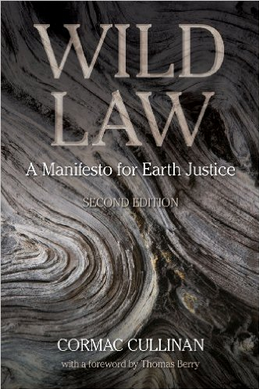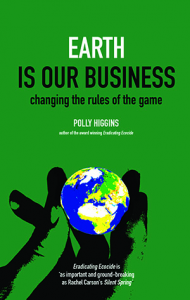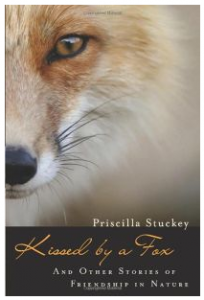I’m sitting in the audience at a writers’ conference a couple of years ago listening to poets talk about nature. I look forward in this session to being inspired, as I was earlier by Pattiann Rogers, who said,
The Earth and all the music of language are one. Language is made from the Earth as much as the sparrow or sunflower.
But at this panel something different happens. A young poet instead speaks of elegies, laments. Mia Nussbaum says,
Every place has its elegy. One of my first assignments in elementary school was to scour the endangered species list. So I grew up with a sense of the Earth not so much as something that abides but as something that could go away.
Her generation, she adds, is the first to face such a reality. The first to grow up with elegy as their companion, a lament for an Earth that is passing away.
In that moment, my heart breaks. For her, for all her peers—all who know in their bones that humans are in the process of destroying life as we know it. As the Earth heats up and the seas rise and thousands of species go extinct—another 200 today alone—they know that reversing our course is going to require dramatic action.
And that’s why we must place the rights of nature into law.
Enacting rights of nature is a fairly simple process happening now in towns and cities around the States and in a number of other countries. Though a simple act, it has enormous consequences. It changes our fundamental relationship to nature. No longer are the rivers and soil and minerals and climate and trees on which our lives depend regarded as objects; they become subjects possessing the right to flourish. No longer simply property, they become indispensable collaborators of life on earth. Not just “natural resources,” they become recognized instead as the very source of human flourishing. Not a commodity, Earth is seen as a community.
Cormac Cullinan  is a South African environmental lawyer whose book Wild Law (2nd ed., 2011) lays out the rationale for rights of nature. Cullinan writes,
is a South African environmental lawyer whose book Wild Law (2nd ed., 2011) lays out the rationale for rights of nature. Cullinan writes,
Within the Earth system the wellbeing of the planet as a whole is paramount. None of the components of the Earth’s biosphere can survive except within the Earth ecosystem. This means that the wellbeing of each member of the Earth Community is derived from, and cannot take precedence over, the wellbeing of Earth as a whole.
When rights of nature are placed into law, the upside-down legal structure of the modern era, in which human beings set themselves above and apart from nature, gets righted. Recognizing that nature has rights restores the proper order, the real-world order: humans are dependent on the Earth for everything, down to our very lives. As Cullinan says,
It is only our failure to appreciate that we are part of the Earth Community has led us to believe and act as if the reverse were true.
What do we have to give up to give nature legal rights? Our arrogance, for one. Our blindness, which has led us to set ourselves over and above the natural world. We will have to change some basic rules—from profitability as the bottom line to survival of the Earth ecosystems as the true bottom line. From using others for personal gain to acting “as good citizens of the Earth as a whole.” Most of all, we give up the right to perform ecocide. We give up the “right” to do massive damage and destruction to the Earth.
 Polly Higgins is a British lawyer who is working at the UN to make ecocide the 5th Crime against Peace, alongside genocide and war crimes. Ecocide is the outcome when nature is seen as an object, a commodity. “Ecocide,” she says, “is a crime against humanity; it’s a crime against nature; it’s a crime against future generations; and ultimately, it’s a crime against peace.” Giving nature rights “is about prioritizing people and planet above profit.”
Polly Higgins is a British lawyer who is working at the UN to make ecocide the 5th Crime against Peace, alongside genocide and war crimes. Ecocide is the outcome when nature is seen as an object, a commodity. “Ecocide,” she says, “is a crime against humanity; it’s a crime against nature; it’s a crime against future generations; and ultimately, it’s a crime against peace.” Giving nature rights “is about prioritizing people and planet above profit.”
Not too long ago it was thought that people could be bought and sold. Our modern systems were conceived in an era of slavery, and the idea of outlawing slavery brought a panicked outcry: “Our economy will collapse!” Though of course, it didn’t.
Eventually we gave up using people for private gain. Now it is time to expand our sense of justice to the Earth itself. Cullinan says,
The day will come when the failure of our laws to recognize the right of a river to flow, to prohibit acts that destabilize Earth’s climate, or to impose a duty to respect the intrinsic value and right to exist of all life will be as reprehensible as allowing people to be bought and sold. We will only flourish by changing these systems and claiming our identity, as well as assuming our responsibilities, as members of the Earth community.
What other choice do we have? The survival of life as we know it is at stake.
Do we want to write elegies for Earth? Or do we want our children to inherit a planet where they and the generations after them can live?
For more information:
- Cormac Cullinan speaking at the World People’s Summit for Climate Change, Cochabamba, Bolivia, 2010.
- “If Nature Had Rights,” by Cormac Cullinan, Orion magazine, 2008. Also includes an excerpt from his book Wild Law.
- Polly Higgins speaking at TEDxExeter, 2012.
 My book, Kissed by a Fox: And Other Stories of Friendship in Nature, explores in creative nonfiction what it means to regard Earth as a living being. Coming in September, available now for preorder. Update: The book was published in September 2012 by Counterpoint Press. You can download the first chapter here.
My book, Kissed by a Fox: And Other Stories of Friendship in Nature, explores in creative nonfiction what it means to regard Earth as a living being. Coming in September, available now for preorder. Update: The book was published in September 2012 by Counterpoint Press. You can download the first chapter here.
